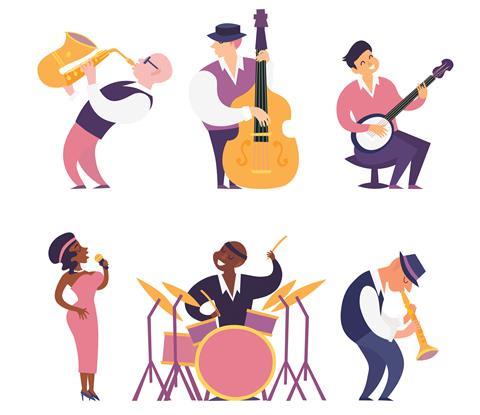For lawyers, ‘taking a sabbatical’ can mean anything from six weeks out to settle young children into school, to six months spent solo, walking ancient pilgrim routes from Canterbury to Rome
1. Scope out the firm’s policy on sabbaticals as early as possible
Legal employers do not have a common stance on sabbaticals – although the larger the firm, the more likely it is to have a policy. Some offer a six-week sabbatical at eight years of service, others a two-month sabbatical at 10 years. Mayfair firm Forsters introduced a sabbatical policy 18 months ago as part of its ‘wellness’ programme: a two-month break at 10 years’ service. Head of HR Alison Fairchild took a sabbatical herself after 20 years at the firm: ‘It was a fantastic opportunity to recharge the batteries, take a screen detox and then return to work with renewed energy and enthusiasm.’
If no policy exists, don’t despair. Celia Marr, an associate at business crime specialists Peters & Peters, arranged for six months off to travel around South America. The firm reviews requests for sabbaticals on a case-by-case basis, so the negotiation and timing is down to the individual: ‘I asked for the sabbatical well in advance so there was plenty of time to re-allocate the work. I had been there six years, so was well established in the role.’
2. Be clear in your mind why you feel you need this time out
If you are taking a sabbatical because you loathe your job – rather than as an opportunity to refresh yourself and diversify your experience – your return to work will come as a crushing blow. It will be as if you had never been away. Be honest – do you really have a passion for Mandarin or is this just a means of escape? If the latter, a permanent fix may be better. A sabbatical should reinvigorate you and also allow a step back to reassess your working life. ‘I’ve seen people realise, as a result of a sabbatical, that their work-life balance was off prior to the break,’ says Matthew Kay, director of Vario, the contracting arm of Pinsent Masons. ‘Don’t lament the time you had on sabbatical to see your family or pick up the children from school – look at your role and see how it can be changed to embrace more flexibility.’
3. Don’t feel you have to be worthy
If you want to take time out to save the white rhino, or work with deprived children, that is admirable and has clear benefits for society, personal growth and the breadth of your skill set. However, we all lead pressurised lives, which often involve balancing exacting responsibilities at work with caring responsibilities at home. Spending time with children or caring for elderly relatives is just as valid. ‘Firms don’t tend to mind what you do – whether it is relearning old skills, taking up the piano, or travelling – so long as you come back re-energised,’ says Duncan Bailey, head of private client at Brabners, who took a six-week road trip around California with his family during his sabbatical last year.
4. Prepare, prepare, prepare
It is no good returning from a refreshing break to find a deluge of chaos breaks over your head as soon as you open the office door. A sabbatical takes careful planning, from informing clients well in advance to emptying your inbox and in-tray. ‘It is important that matters are not left in abeyance,’ says Bailey. ‘And there should be no backlog pressures when you get back.’
5. Think about your return
Do you have a nagging doubt that, once you have gone, hard-won work (and clients) will be snaffled by others without your vision or wanderlust? Perfectly natural – but the length of most sabbaticals these days (between six to eight weeks) means that in most cases your absence can be easily covered. Moreover, clients are, in the main, supportive of such progressive employment policies. If you need to assuage any fears you can always check the terms of your contract: ‘It should be clear that an employee returning from a sabbatical retains the same status as before,’ says Barry Mordsley, an experienced employment practitioner previously at Harbottle & Lewis.
Katharine Freeland is a freelance journalist
A good tune up

Wellbeing guides have much to say about the benefits of exercise as a counterweight to the stress of professional life. But what about music? Specifically, should lawyers be skipping the odd 5k run or pilates class to pick up or return to an instrument? Many will have put down an instrument at a fairly competent grade 4, 5 or 6, when it was clear they weren’t headed for virtuosity and other distractions came along.
We all know the importance of balancing work with something different – if you sit at a desk, try walking around, the argument goes. Perhaps sitting in one place to play the piano while looking at black marks on a piece of paper isn’t quite different enough from sitting at a desk looking at, well, black marks on a piece of paper or screen. And it is worth noting that professional musicians, like lawyers, are reckoned more likely than the rest of the population to suffer from episodes of poor mental health. Music can bring out the same stressed inner perfectionist you’re trying to take a break from. If you find it relaxing to play a Beethoven sonata, you’re probably not trying hard enough.

Playing music as a hobby, though, is different. There is no client, and if you find a teacher they are not your manager or senior partner. This is just for you. You are listening hard and when you’ve learned the notes you can be creative. Tunes and phrasing you are working on can play through your head on the way to work, drowning out other stresses.
Music is physical too – if you think musicians never break sweat from the effort, you’re clearly sitting too far back in concert halls.




























No comments yet